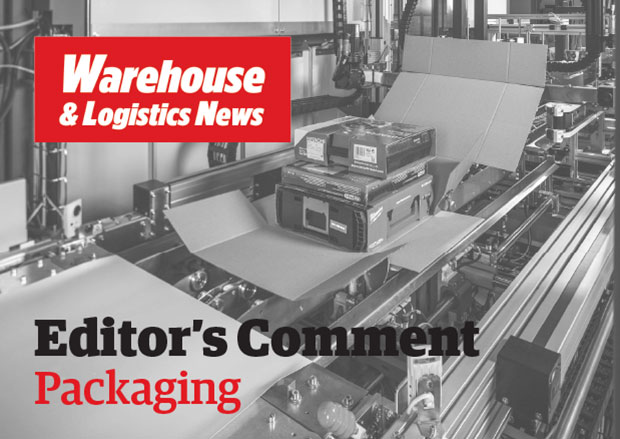Packaging can be a critical component in the success of internet retailers and their 3PL partners. For most companies involved in the packing and distribution of goods, stretch film is one of the biggest areas of plastic usage. With environmental concerns an increasing focus and the new Plastic Packaging Tax now introduced, finding ways to reduce and manage the use of stretch film without negatively impacting business is a priority.
 Stretch film is frequently over-used, meaning that there are savings to be made for most companies. For those companies that may have already optimised their film usage, another way to reduce the impact of the Plastic Packaging Tax is by switching to a film containing a minimum of 30% recycled plastic, which, as with other plastic packaging products containing at least 30% recycled content, will be exempt from the tax.
Stretch film is frequently over-used, meaning that there are savings to be made for most companies. For those companies that may have already optimised their film usage, another way to reduce the impact of the Plastic Packaging Tax is by switching to a film containing a minimum of 30% recycled plastic, which, as with other plastic packaging products containing at least 30% recycled content, will be exempt from the tax.
This article was first published in the July 15th 2022 issue of Warehouse & Logistics News, subscribe to the magazine by clicking here.
Logistics businesses can review how quickly they can assemble and pack product, according to Charlotte Hardy, Digital Marketing & Communications Manger at Macfarlane Packaging. This can highlight whether it takes packers minutes rather than seconds to tape and seal a cardboard box, for example. In this instance, substituting the current process with automated sealing, could help shave seconds off pack times.
Through its stretch CONSULT assessment, Antalis Packaging has helped customers to reduce their film usage by up to 70%, not only creating savings in terms of material costs but, now the PPT has been introduced, it can help reduce the impact of the £200-per-tonne tax, too. In addition, Antalis has recently introduced a PPT-exempt film containing a minimum of 30% recycled plastic. Packaging Product Manager Ian Whitcombe stresses that the key to making savings overall is to ensure the correct film for the pallet wrapping machine is being used, and that the machine is calibrated correctly, all of which forms part of the findings and recommendations of the stretchCONSULT assessment.
HOMAG’s PAQTEQ cardboard box cutting machines automatically produce resource-friendly, made-to-measure cardboard boxes. PAQTEQ machines produce packaging to exact requirements – in the optimal shape, with high volume utilisation and a minimum unit cost. The packaging technology has an adaptable cardboard feeding system with automatic access to a maximum of 12 different track widths.
Nulogy’s flexible cloud-based software has been chosen by leading contract packer Glowcroft as the platform to enhance the business’s agility and responsiveness to its fast-moving consumer goods (FMCG) customers. Replacing a previous combination of customised ERP and homegrown and manual systems, Nulogy’s software will allow Glowcroft to manage its production flow and materials more efficiently and perform all necessary quality checks in a faster, more accurate manner. Connecting with financial and CRM systems, the platform will provide the scalable, innovative technology solution the company needs to accelerate and support its next phase of growth.
It is encouraging to see that the packaging industry is continuing to innovate, while still showing concern for the future of the planet.
George Simpson
Features Editor





Comments are closed.